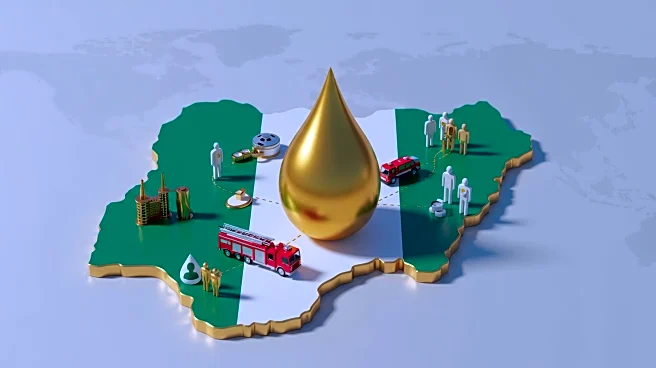What is the story about?
What's Happening?
A report by the Nigerian Upstream Petroleum Regulatory Commission (NUPRC) highlights Nigeria's vast untapped oil and gas reserves, with over 3.5 billion barrels of oil and condensate and 18.8 trillion cubic feet of gas yet to be developed. The report reveals that only 12.25% of deepwater fields are developed, while 52% remain untapped. Nigeria's 2025 budget shows a deficit of nearly ₦13 trillion, underscoring the gap between borrowing demands and idle reserves. The untapped reserves, valued at approximately $227.5 billion, could potentially fund significant infrastructure projects, including two million health centers, five million classroom blocks, or 413,000 kilometers of highways.
Why It's Important?
The underutilization of Nigeria's oil and gas reserves represents a missed opportunity for economic growth and development. Properly harnessing these resources could address critical infrastructure and health service gaps, significantly improving the quality of life for millions of Nigerians. The potential to build health centers and educational facilities could transform public services, reducing healthcare disparities and enhancing educational access. Additionally, developing these reserves could reduce Nigeria's reliance on borrowing, stabilizing the national budget and fostering economic resilience. The report underscores the need for strategic investment and policy reform to unlock Nigeria's full economic potential.
What's Next?
Nigeria faces the challenge of developing its untapped oil and gas reserves to realize their full economic potential. This will require investment in infrastructure and technology, as well as policy reforms to attract foreign investment and streamline regulatory processes. The government may need to prioritize partnerships with international energy companies to expedite development. Addressing the budget deficit through resource development could stabilize Nigeria's economy, reducing reliance on external borrowing. Stakeholders, including government agencies and private investors, will need to collaborate to ensure sustainable and equitable development of these resources.
















